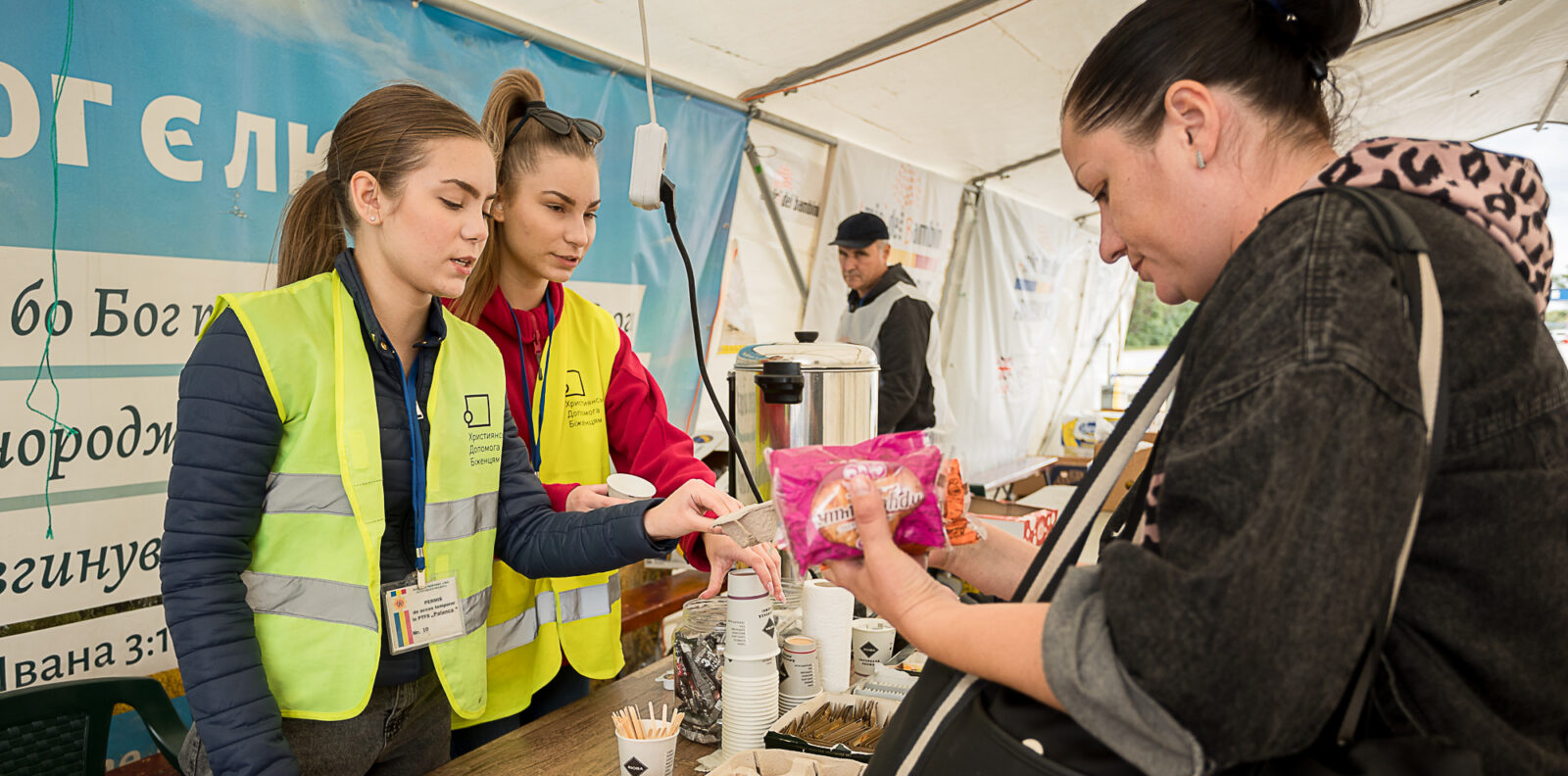WPHF is channeling flexible institutional and programmatic funding to local civil society organizations and women activists across Ukraine and Moldova working to provide critical humanitarian assistance to women refugees and internally displaced people (IDPs), advance their leadership in conflict resolution, enhance their participation in humanitarian planning and response and economic recovery efforts, and protect war-affected women and girls from sexual and gender-based violence (SGBV).
Overview
In Ukraine and Moldova, WPHF has supported 147 civil society organizations under its Regular Funding Cycle and Rapid Response Window, and 13 women human rights defenders under its Window for WHRDs.
WPHF is supporting local women’s organizations in Ukraine and Moldova working on projects contributing to the following impact areas:
- Impact Area 3: Humanitarian & Crisis Response
- Impact Area 4: Conflict Resolution
- Impact Area 5: Protection of Women & Girls
- Impact Area 6: Peacebuilding & Recovery
Project Highlights
Explore a sample of key women’s rights and women-led projects that WPHF has supported as part of its regional response in Ukraine and Moldova:
Ukraine
- Under its Regular Funding Cycle, WPHF has supported the Ukrainian Women’s Fund on a project that aims to enhance the economic recovery of women IDPs by providing them with capacity-building training and grants to start, strengthen and/or relocate their small businesses. This initiative will also support the expansion of women-led businesses to include jobs for women IDPs, as well as provide three local CSOs with tools to monitor businesses, serve as business support hubs, and network with employment and humanitarian coordination centers in their regions.
- Under its Regular Funding Cycle, WPHF has supported Positive Women on a project that aims to promote the resilience, needs and interests of women living with HIV/AIDS in the context of the humanitarian crisis in Ukraine. The project will (i) create and/or strengthen four shelters across four Ukrainian oblasts for the temporary accommodation of women living with HIV/AIDS; ii) distribute basic goods, food, hygiene kits and vital medication among women and their children; and iii) provide women and girls with online and in-person psychosocial support, including legal assistance and referrals for employment and other needs.
- Under its Regular Funding Cycle, WPHF has supported the Ukrainian Foundation for Public Health (UFPH) on a project aimed at enhancing access to in-person and online mental health and psychosocial support (MHPSS) and legal and referral services — including referrals for accommodation and mental health services — for displaced women and girls, survivors of SGBV, and victims of human trafficking during the crisis in Ukraine. UFPH will use a SafeWomen Hub platform to raise awareness of these services across the country, build the capacity of local CSOs in the prevention of and response to SGBV, and help them adapt to the crisis and identify survivors.
- Under its Rapid Response Window, WPHF has supported the Center for Social and Labor Research (CSLR) on a project to facilitate community-led feminist inclusive dialogues among women activists, providing them with a space to inform approaches to recovery, reconstruction, and peacebuilding in Ukraine.
Moldova
- Under its Regular Funding Cycle, WPHF has supported Institutum Virtutes Civilis on a project that aims to strengthen the public-private partnerships between civil society organizations (CSOs) and local public authorities (LPAs) in Moldova. Specifically, the initiative seeks to enhance their ability to participate in humanitarian planning and response through capacity-building initiatives (including do no harm approaches), the development of action plans, and mentorship and community awareness of the role of women in those areas. To foster inputs from CSOs, the project will provide sub-grants for initiatives focused on delivering immediate goods (food and personal hygiene) and ensuring protection (e.g., providing safe spaces or facilitating access to services). It will also support peace volunteers to provide direct assistance to displaced women and children.
- Under its Regular Funding Cycle, WPHF has supported Femei pentru Femei (Women for Women) on a project aimed at retaining its staff — through remuneration and payment of office costs — so that it can continue to provide its vital programming to displaced women. Specifically, the project will i) develop new strategic planning to adapt to the current crisis; ii) elaborate its diversity policy and risk management/contingency plans; iii) improve its financial management systems and develop procurement policies with a focus on resource mobilization; iv) build a new website and logo; and v) integrate self-care and well-being through the provision of counseling for staff members and volunteers.
- Under its Regular Funding Cycle, WPHF has supported La Strada International on a project that aims to promote women’s resilience – with a focus on human rights and GBV – in the context of the humanitarian crisis in Ukraine. The project will increase access to information and sensitization on violence against women, provide specialized services for women and girls who are forcibly displaced and survivors of violence, and strengthen the capacity of local organizations to promote women’s rights during the crisis.
Amplify the Voices of WPHF Partners in Ukraine and Moldova
In Her Own Words: Meet Our Partner Halyna In Her Own Words: Meet Our Partner Alina
More Resources on WPHF in Ukraine and Moldova
👉In 2023, with the support of @WPHFund and @UN_Women🇺🇦, 40 civil society organizations enhanced the protection of over 46 thousand Ukrainian women and girls.
Together, we expand opportunities to build a safer and more equal society for all. More details in infographics
⬇️⬇️⬇️ pic.twitter.com/saB1Vpexc6— UN Women Ukraine (@unwomenukraine) April 15, 2024
